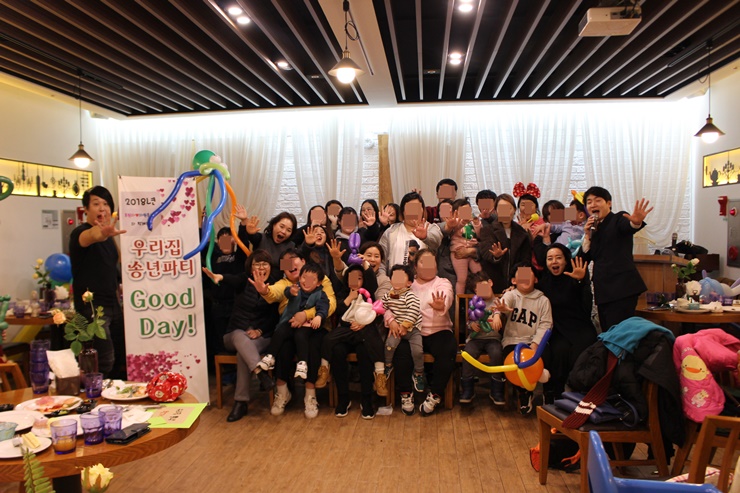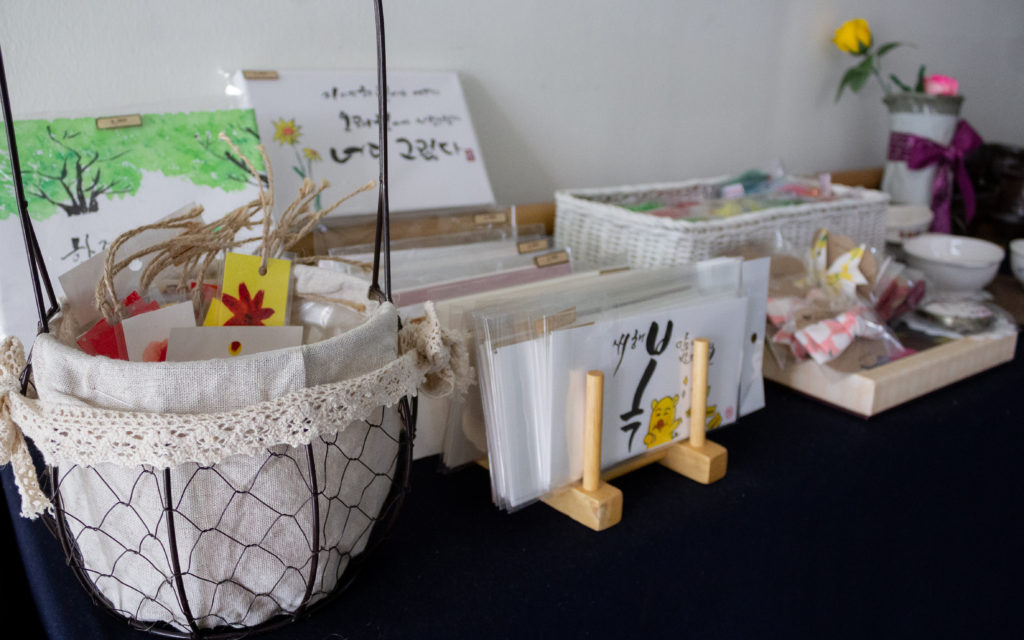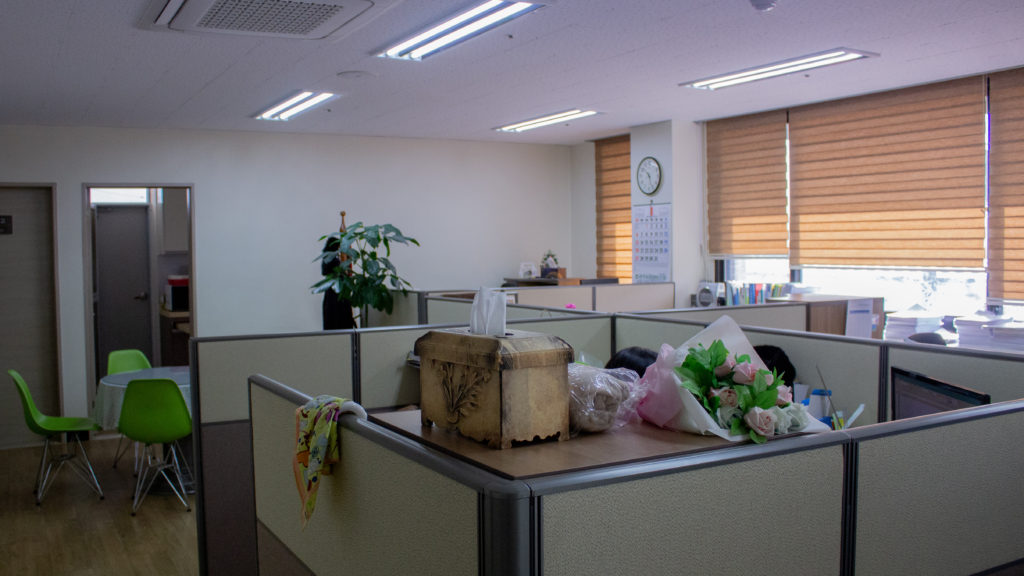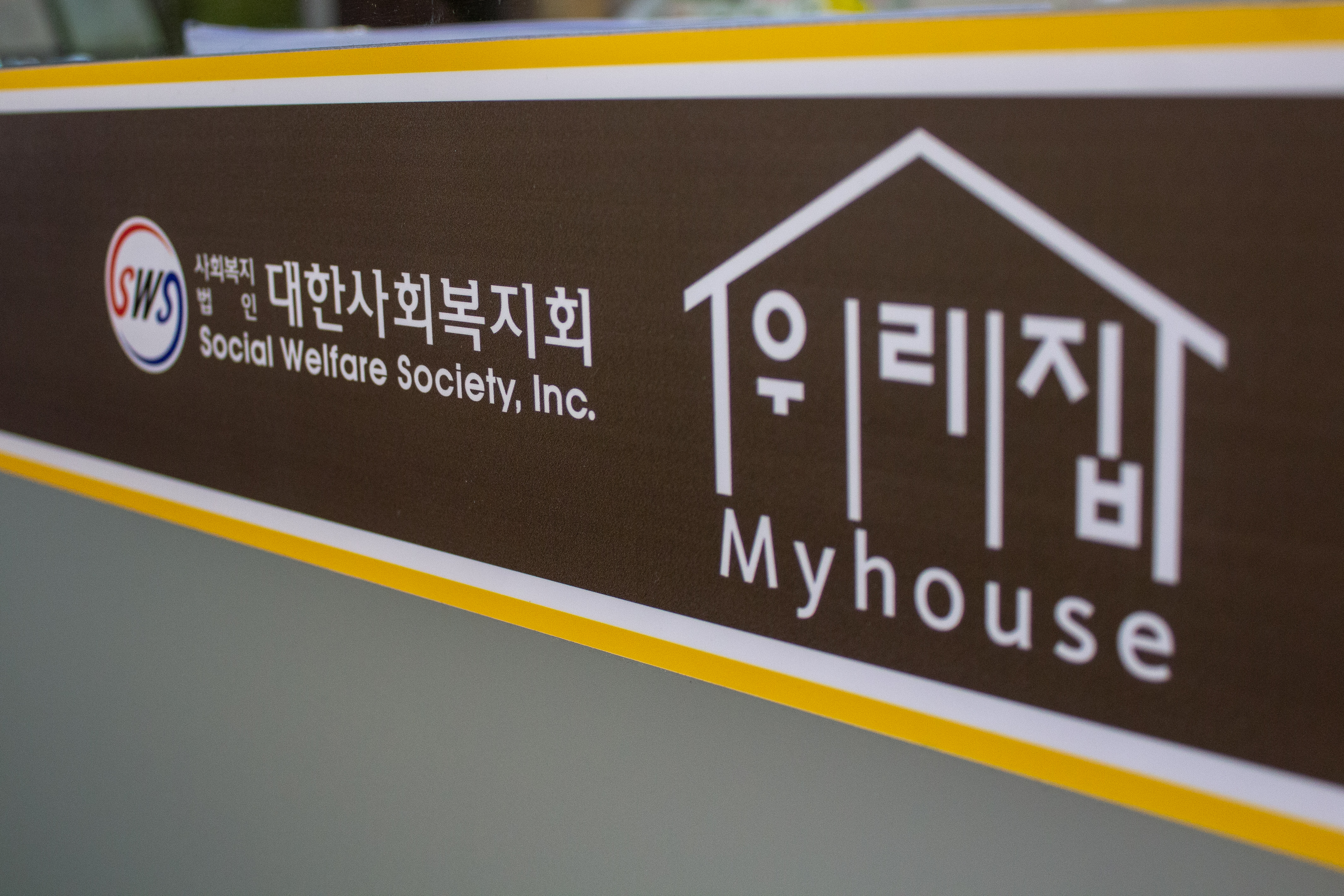“My House’s” Love, Dignity, Acceptance, and Hope
Written by Mathkiya Usmonova
Original interview translated by Karina Prananto.
Photographs by Sarah Pittman and courtesy of My House.
As we all know, women in society are a group in danger of social isolation and poverty. Single mothers are particularly vulnerable, as they must often face the fact that they have no one to rely on and are often forsaken by their families and the rest of society. As a result, single mothers are in a particularly precarious situation as they bring up their kids alone.

Currently, there are 42 organizations in South Korea that provide support for married and unmarried women with children. Among these, My House was first established on June 1, 2003 as a facility to help single mothers, even after they gave birth. But on July 1, 2015, their main work was changed to being a facility to support the mother and the child as well as giving them education and preparation for life ahead. The main reason why it was named “My House” is that many people still think badly about the places where single mothers live, so as an alternative to calling it a single mothers’ house, it was decided to use the name “My House” instead. This name has helped residents of the house to not feel ashamed whenever they mention it in public. In the past, My House was set up to help unmarried pregnant women, but now it is also for mothers who have to care for their children alone without support from the fathers. Today, it is a house of hopes and dreams.
On January 10, I, along with GIC coordinator Karina Prananto and photographer Sarah Pittman, visited My House (uri jip, 우리 집). There we held an interview with Gi Se-sun, the head of this organization. She was full of surprises and left us feeling excited about her loyal efforts and contributions to Korean single mothers. During the interview, she shared with us many incredible tidbits about My House. Here I would like to provide our readers with the full story of My House, as shared by Gi.

Presently at My House, there are about ten households, including ten mothers and 12 kids. Seven children below the age of seven attend kindergarten, one is still a baby, and the others go to elementary, middle, and high schools. Seven units accommodate single moms and three units house once married but now divorced mothers. Their ages range from those in their twenties to those in their fifties. They can stay at My House for three years, with an additional two years at maximum. Interestingly, My House also supplies its residents with all the furnishings they need and even gives subsidies for utility bills like electricity and gas. The description we got of each room at My House sounded quite cozy.
Moreover, My House provides other forms of support, including psychological consultations for single mothers. This is important because, as mentioned above, some people in society have negative attitudes toward single mothers, causing them to have particular psychological and emotional challenges as a result of living with so much judgement. In order to prevent such issues, there are great opportunities to get therapy and consultation at My House. Depending on their psychological state, a mother can apply for a consultation or a therapy session once a week. Most interestingly, mothers at My House are provided with an extensive diversity of educational opportunities, such as learning about sexual education, education on parenting, education on sexual abuse prevention for kids, workplace education, and education on overcoming habits such as smoking and drinking alcohol. Annually, there are two sessions for each category.

My House also has a family experience program that allocates money to Korean families to spend their time outside with resident single mothers as a family. They can go to kids’ cafes, the movies, theme parks, and the like depending on their preferences. The main purpose of this is to help the mothers to spend time together with the children, bringing them closer as in a normal family.
In the past, the number of single mothers was smaller compared to the present. Even today, people look down on single mothers and give them little respect. Recently, there has been an increase in divorced couples, unmarried couples, and unmarried adults who still want kids. According to Gi, if this trend continues in the future, kids who live without a mother or father may confront big challenges related to their mental and emotional development, and it may be quite difficult for them to tackle these kinds of problems. Similarly, it is true that a child’s self-esteem and confidence might take a hit as a result of this negativity, and some may blame themselves for the situation. So, the contribution of this organization to kids with their needs includes providing them with therapy in order to help them to better understand their family’s unique situation.

When it comes to raising money to help single mothers, society can be rather cold toward them. My House would benefit from having regular donors who could donate just 10,000 won monthly. Surprisingly, there are many foreigners who assist My House through fundraising events, and there are even ten volunteers, five of whom are university students and most of the others office workers, who work in two teams. They regularly go to My House during the monthly meetings to help look after the children while their mothers are having a meeting or attending education lessons. For example, the volunteers might visit My House in the evenings when the mothers’ education starts at 7:00 p.m. There are additional volunteers who come to clean the houses as well.
The most amazing thing that Gi had to share with us was how My House encourages mothers to find wellpaying jobs. This year, they have a well-laid plan to give single mothers 100 percent financial support to let them study and receive certificates for subjects like nursing, hairdressing, barista skills, computer skills, and cooking. The certificates will be beneficial for them when jobhunting. On top of this, My House also pays 50 percent of the children’s tuition fees if they want to attend afterschool academies. During our visit, we learned that one mother works as a nurse, two work as contract workers at a community service center (동사무소), two work in a district office as support workers, and the others work part time at restaurants, with one still attending university.

The writer (second from right) with Gi (center) in front of My House.
It is important to note that My House does have strict rules and regulations that must be observed. There can be no smoking or drinking alcohol indoors among the single mothers. My House has a point system totaling 40 points, in which offenders are penalized for smoking, drinking, fighting, or causing a commotion. Most infractions count as ten points. Lastly, no pets are allowed inside.
Gi admitted that the single mothers may feel a bit burdened while living at My House, as they have to obey the rules, abide by the curfew, and also attend monthly meetings. At the same time, if they remain at My House, they can receive financial support and free gifts such as toilet paper and rice during the major holidays from corporations that make annual donations to organizations such as My House.
After the five years are up, these mothers will still receive support, because even when they have to leave My House, the government gives them five million won in financial support and the organization itself provides them with an additional one to two million won for living expenditures, such as furniture and tax payments. Their future is still very much considered by both the government and the center.

Small but efficient office at My House where Gi and her staff work.
Here I would like to give some details about how the general public can help single mothers with donations or assistance. My House can receive donations of used or new items. Donations can be sent to the following address: 광주 광산구 어등대로 563번길 30 (운수동,우리집) There will be fundraising events in the near future in which interested people can participate. Also, anyone can make monetary donations to My House directly through these bank accounts:
Kwangju Bank: 021-107-337066 (우리집) Nonghyup: 351-0138-3363-83 (우리집) Kookmin: 897001-00-011401 (우리집)
In addition to these options, My House is looking for individuals who can donate their talents, be they in art, music, or English for the children and mothers. My House’s working hours are from 9 a.m. to 6 p.m.
In a nutshell, families of all kinds have the right to obtain appropriate social, legal, and economic protection through the help of individuals and the state. All in all, our experience at My House was edifying and inspiring.
The Author
Matkhiya is from the Republic of Uzbekistan. Presently, she is a student at Chonnam National University majoring in English Language and Literature. In her free time, she learns Korean and travels with her joyful friends to many beautiful parts of South Korea. She habitually strives to improve herself personally and educationally, and tries to learn from her own mistakes. With all her heart, she is quite grateful for her meaningful and loving life.







